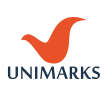
Made Faked in China
No matter whether you are an American, Indian, or European-owned brand, most of the products sold in our home country or export country bear the tag of “Made in China” or “Made in PRC”. A quick thought – “why do these companies tend to hire these Chinese Manufacturers?” The identified reasons may be that China is a labor-intensive country with very cheap and affordable labor that helps these businesses get the finished products at a very considerable and reasonable price.
They sell these products with a heavy margin since the cost of production is minimal. Have you ever thought the other way? What if these Chinese manufacturers infringe your IP rights to manufacture the products and sell them at a rate lesser than yours? There is always an uproar among the consumer that the Chinese market is making dupes (duplicates) of the products they manufacture for other companies.
This includes trademark theft and product theft, and they easily get away though it is patently illegal. So, How do you save your IP Rights from the clutches of these Chinese manufacturers? If you want to know why and how you should protect your company from going down, read the article till the end. First thing first, you have to be very clear that Chinese Manufacturers will definitely copy and sell your products at some point in time. That’s how it’s been over the years, and nothing has changed ever since.
These manufacturers are very well aware of the loopholes and prohibition measures that can be adopted to save themselves from the legal consequences. There is absolutely nothing you can do once they start manufacturing the dupes of the product and sell them without your consent. Unless you have a Contract signed with them or IP registration done for the mark that can prevent the manufacturers from trademark or product theft, there is no other way out from this.
It is really heart pricking when the same product is sold at nearly 45% lesser rate than what you sell, with your brand name on it, and people tend to fall for such pricing without thinking about the quality compromised in that.
If the product doesn’t match the expectation, it is your brand name or company name that gets damaged, and these manufacturers are at no loss as their cost is recovered. Without a Trade contract with these manufacturers or China-specific contracts, legal actions cannot be possibly taken. Claims on the protection of trade secrets can be made, but that is going to cost you a fortune. What should you do to Protect Your IP Rights in China?
- Sign a NNN Agreement (Non-Disclosure, Non-Circumvention, and Non-Use Agreement) with your company. This will stand as evidence and helps protect your trade secrets.
- Get Your Mark Registered in China. It might surprise you to know that the registration of trademarks in China is not costly compared to other countries. Also, it is ideal to register your IP Rights in China, and it comes in handy in case of claims against these infringers.
- Choose a Reputed and Good Manufacturer for your company. Trust is the key to success, but blind trust is not. Make sure you do in-depth research on your manufacturers before confirming any business associations with them.
- Keep everything in writing. What is not written is not protected before the Chinese court with jurisdiction over the Chinese defendant. This means that Chinese law is the governing law, Chinese is the governing language, and exclusive jurisdiction is in a Chinese court with jurisdiction over the defendant. The fundamental reason for this China-focused approach is that in cases of infringement or circumvention, you must be able to move quickly against the Chinese defendant.
The Bottom Line: A Chinese manufacturer that registers the brand name or the product name, or the logo of one of its customers as a Chinese trademark does not have a valid trademark. If you follow the above steps, your odds of your manufacturer copying your product and/or using your brand name go way way down.
As you know, it is always buyers beware, if you fail to follow the precautions, at least you will not be surprised when your manufacturer starts selling your product with your brand name on it without your permission.
Editorial Note: The facts are suggestions given above are mere options one can check on to. For personalized legal support on your cases, please get in touch with our legal team.






Comments
There are no comments for this story
Be the first to respond and start the conversation.